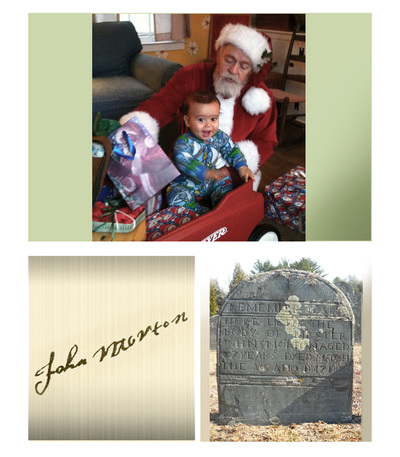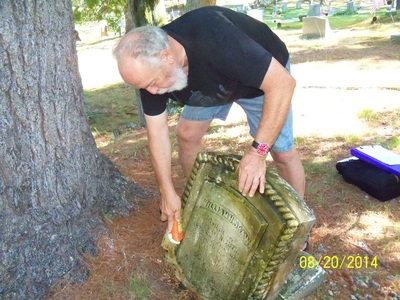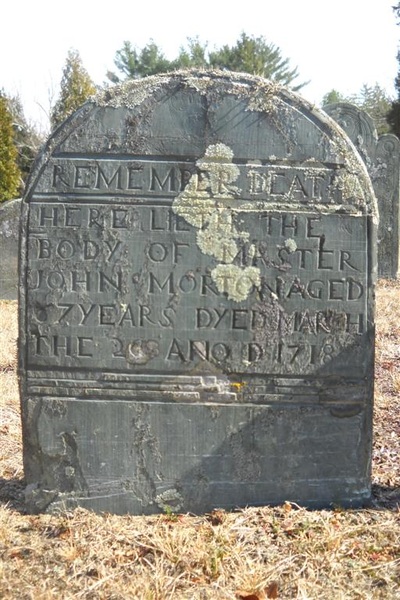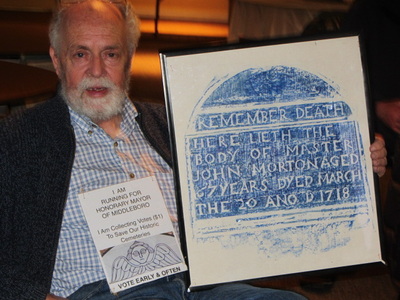Jeff Stevens and John Morton
Click photos to enlarge.
|
About Jeff Stevens
Founding member & Director of Friends of Middleborough Cemeteries Local history nut - interested in Middleboro gravestones Teacher & Principal for 36 years - Middleboro Schools Energy Manager of MPS - 6 yrs - Avoided over 2 million in energy Recycling Coordinator for MPS - recycled over 60 tons in ’13/ ’14 Soule Farm Education Center Officer & Board member over 10 years Co-Chair - Middleboro Green Energy Committee Proud Santa (& Granddad) at XMAS About John Morton (1650 - 171) John Morton established the first public school in Plymouth. It is believed to be the first free public school in the “new world”. His father was part of 26 Mans’ Purchase and was given land in Middleboro where he raised his family. John is Jeff Stevens’ 6th great grand uncle. His gravestone was cut by the first Middleborough carver, name unknown. He is buried at the Cemetery at The Green. Thomas Weston, in his book "History of the town of Middleboro, Massachusetts", in the chapter "Early Settlers before King Philip's War", wrote: "John Morton, Jr., the oldest son of his father, was born at Plymouth, December 21, 1650, and with his father probably moved to Middleboro not far from the year 1670. He was remarkably well educated for a man of the period, and it is said kept the first public school in America at Plymouth, in 1671, for the education of "children and youth". He lived with his father in the house near the river which was probably burned during the Indian War, and was in the fort, one of the Commandant's Council. There is a tradition that he saw the Indians coming one evening, and fearing to remain in the house, he took a pail as if to get some water, but passed the well and did not stop until he found shelter in the fort. Soon after the return of the settlers to Middleboro he built the southeastern part of what was known as the old Morton house, additions to which were made at different times by his descendants until it assumed the size which was well remembered by many of the people of the town. At the time of his removal from Plymouth he was a member of the church there, and never removed his membership, although in full sympathy with the church in Middleboro. He died in Middleboro in 1717.". |
| Friends of Middleborough Cemeteries, Inc |
|





